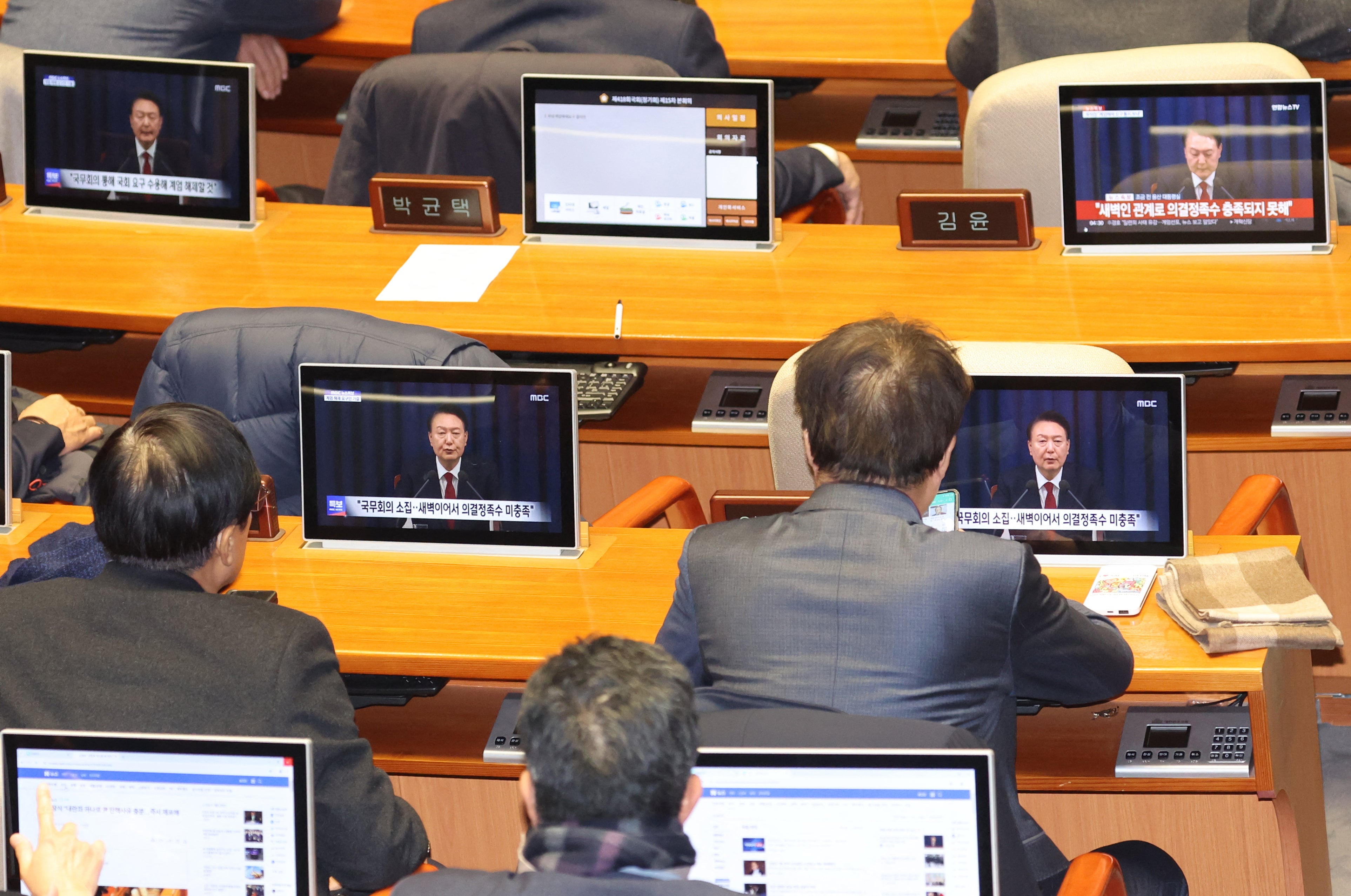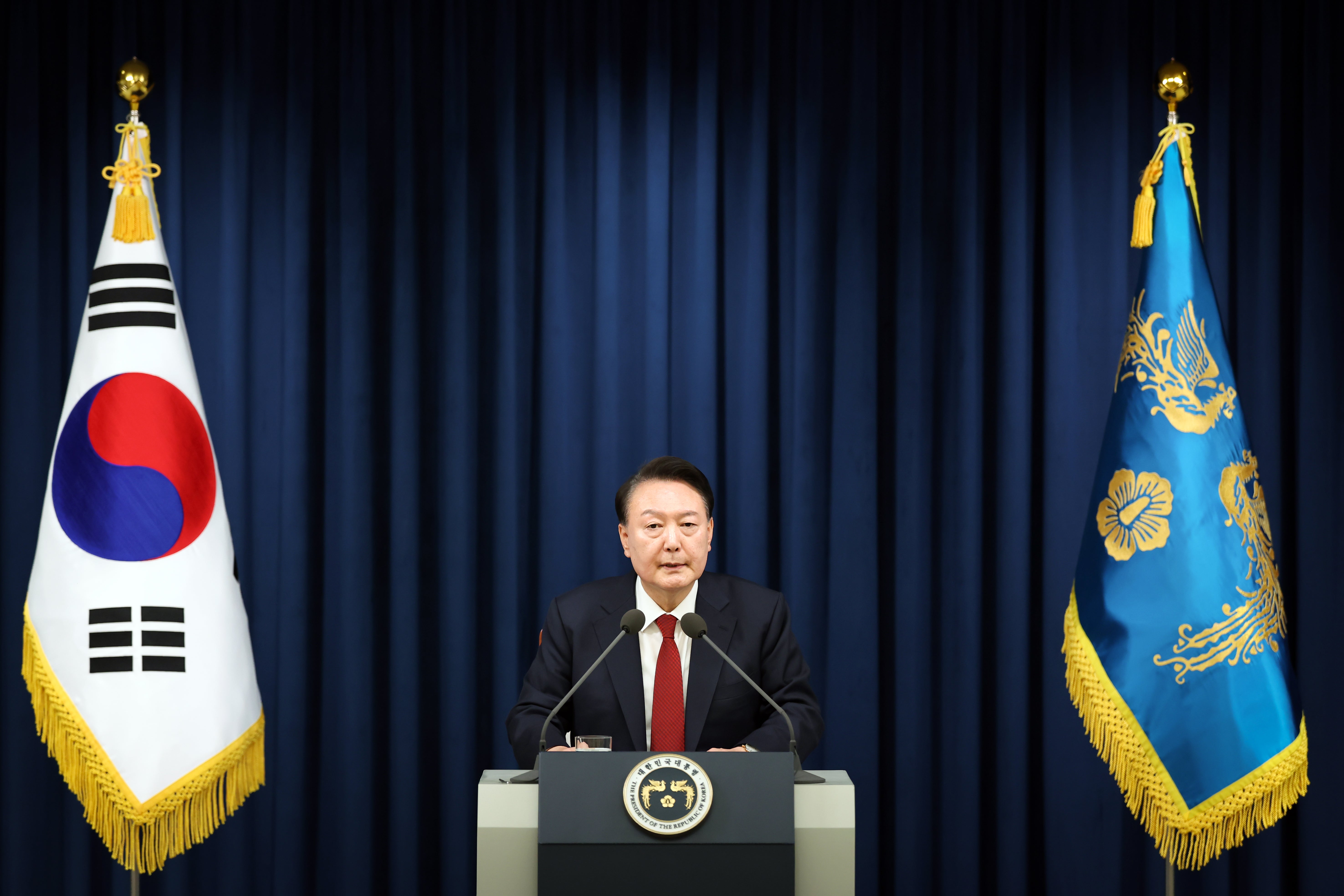British nationals in South Korea have been advised to avoid political demonstrations following the president’s declaration of martial law on Tuesday. By early Wednesday, the president reversed the decision after a dramatic night in which troops surrounded parliament, and lawmakers voted to block military rule.
Yoon Suk Yeol vowed to eliminate ‘anti-state’ forces as he suspended parliament, banned political gatherings and ordered the end of a long-running doctors’ strike on Tuesday.
Following the declaration, the UK Foreign Office issued new travel advice warning British nationals to ‘follow the advice of local authorities’ and ‘avoid political demonstrations’.

A Downing Street spokesman described the situation as ‘very fast-moving’ and said the Government was ‘closely monitoring developments in South Korea’ as he urged British nationals to keep an eye on the Foreign Office’s advice.
Mr Yoon’s declaration follows the South Korean president’s ongoing struggles with the opposition Democratic Party, which retained its majority in the country’s parliament at elections in April.

In a televised address, the president accused the opposition of being sympathetic to North Korea, and said martial law would help “rebuild and protect” the country from “falling into the depths of national ruin”.
He said: “I will eliminate anti-state forces as quickly as possible and normalise the country.”
But the declaration of martial law has been criticised by both the Democratic Party and the leader of Mr Yoon’s own party.
The declaration can be overturned by a vote of the National Assembly, which some reports suggested had already taken place despite police officers and soldiers attempting to block the entrance to the parliament building in Seoul.












